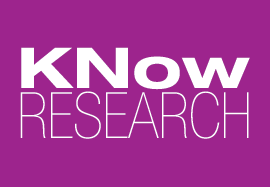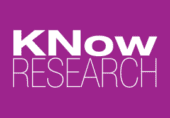International Collaboration For Qualitative Research Agencies
This month we’re turning the virtual pen over to our UK-based Strategic Expert, Lisa Steadman. During her 25+ years as a researcher, she’s enjoyed combining her love for qualitative research, travel, and meeting people from all walks of life. While the pandemic meant less boots-on-the-ground traveling, it didn’t stop international collaboration or the need for it to be done smoothly.
It’s always interesting to localise international projects to your own market and then see how the stories of those we spend time with differ, and how the insights gathered vary or align across markets. However, it isn’t always plain sailing. Working across markets presents its challenges in terms, of being remote from the core client, not being well connected with research teams in the other markets, and of course – working to different time zones and sometimes languages.
When I team up with the team at KNow, our working styles and combined experience make a great team and an exciting working partnership! We want to share some factors that make our international partnership a success, which turn out to essentially come down to personalities, relationships, and the shared values of trust, honesty, collaboration, support, and fun. These have always been core working values for me and finding an international partner that is able to deliver against the same fundamental beliefs, set the foundations for the success of that project, and I am sure, future working collaborations.
How were those values delivered against you might ask? It was quite simple really. Five key actions can make all the difference for the delivery of a successful international, collaborative project.
1. Take the time to brief the overseas markets thoroughly
Make time for more than just an hour-long call being told what the client wants to know. Instead, open the lines of communication up to a more honest sharing of all the details needed about the whole project; the background, the reasons why the client wanted to do the research, how the other markets would be working, and clear expectations for everyone’s involvement. This transparent and open way of working reassures international partners and allows them to feel fully immersed in the client, the objectives, and the project as a whole.
2. Collaboration on project scheduling and requirements
Curate the project schedule and coordinate markets upfront to ensure each market retains some control over the fieldwork. This also ensures the team as a whole is able to meet client needs whilst also working to a schedule that enabled the project to deliver quality output. Allowing individual control within the overall framework sets the tone for a respectful working style throughout the project.
3. Work as one international team throughout the project
Make your expert partners in other countries feel part of the team throughout the project and always ensure there is time for a little fun and laughter along the way. Get them involved in all update meetings, copy them on all important emails to ensure they don’t miss anything and have the chance to view the first country’s fieldwork ahead of other fieldwork to help prepare and digest key stimulus and documents. Also, be sure to take the time to share the stories and experiences you hear from your participants, bringing the research to life as you move through our fieldwork.
4. Engage the researcher directly with the client team
Ensure you’re always one step ahead from a project management perspective. The goal is to work seamlessly as one team with the client, especially in dynamic projects when stimulus, questions, and ideas can change frequently. Keep your expert partners included all along the way so that they can be briefed/updated by the client directly to ensure they are always up to date before commencing the next day of fieldwork. Having a strong team driving the overall project is crucial but, the trust that allowed the full team to work as one where needed is a huge benefit to everyone.
5. Support with additional expertise where needed
Each research team has different tech – including KNow’s virtual backroom – and can use different tools for stimuli development and note-capture. This can be, shall we say, a little overwhelming initially. In my first project with KNow, my first instinct was to admit that it may be beyond my skill set and that I might not be able to juggle so many learning curves running at the same time whilst being in front of a big new client. It can be scary! However, the KNow Research team was with me every step of the way going above and beyond what I could ever expect, by being available at all hours to hold my hand whilst I learned and built enough confidence to finally fly solo. The lesson here is to take time with demos, training, template walk-throughs, and Q&As with your expert partners to ensure they are comfortable with your tools and tech, and have a support system in place as questions will inevitably come up along the way as well!
Collaborative, international projects have the potential to be complicated, overwhelming, and stressful at times but, with the shared values of trust, honesty, collaboration, support, and fun they can be a success for the united international team. Clients feel it too (and yes, I do end up feeling that clients are our shared clients by the end of projects). They can be delighted with the insights and the overall experience when international projects are run smoothly. Personally, I too thoroughly enjoy the experience and despite the many miles between us, feel I have found a new research home where I have been welcomed, supported, respected, and trusted. You can’t ask for more than that.
Read Lisa’s other blog posts here, and let us know what other international collaboration strategies you’ve used to unite as a team for successful projects across country lines and time zones: admin@knowresearch.com

